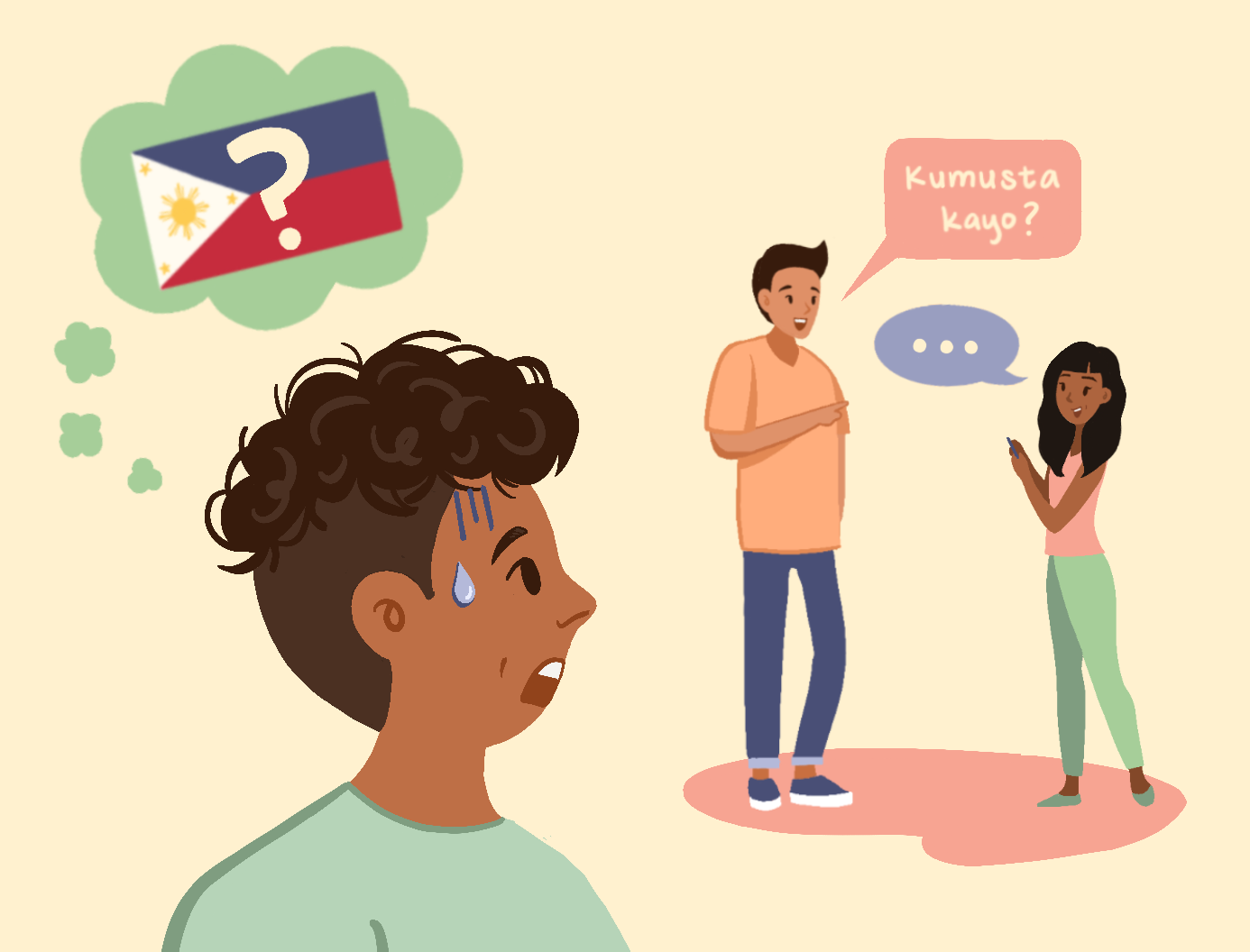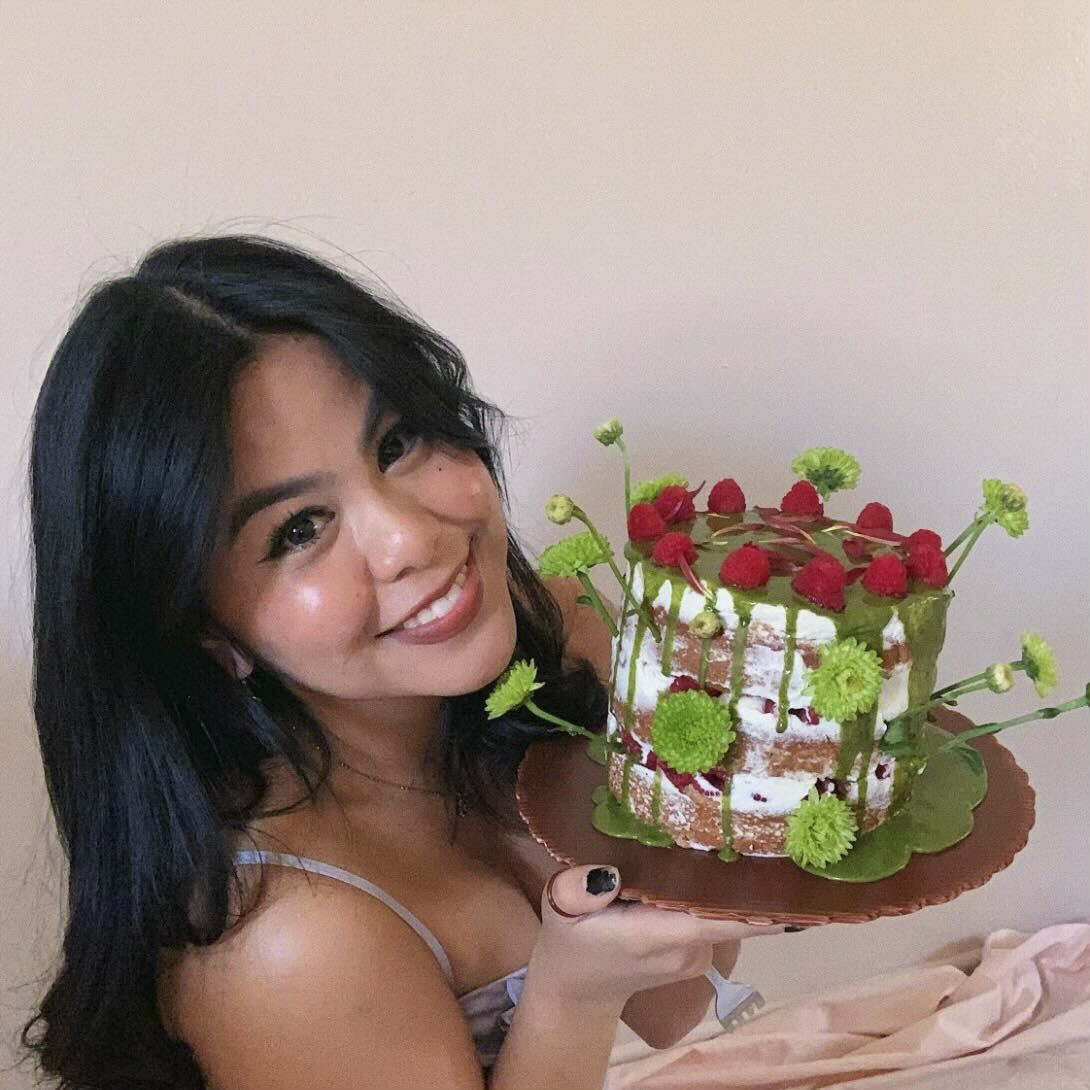Opinion: Learning to embrace my Filipino heritage through environment of acceptance

(Megan Fu/Daily Bruin)
By Diego Rivera
May 22, 2022 9:52 p.m.
Growing up, I was quite the anomaly to the white people of Kansas City’s suburbs.
Was he Chinese? Was he Mexican? I’d play along with their guessing game, answering why I had a Spanish name or why my eyes became really tiny when I smiled. When they eventually gave up, I’d tell them the correct answer – “I’m Filipino.”
But beyond my ethnicity, I felt like I had nothing valuable to share with them. Unlike my classmate who was adopted from China, I couldn’t detail exciting stories about my homeland because I didn’t grow up in the Philippines. And unlike my Colombian classmate, who had spoken Spanish for as long as she could remember, I couldn’t speak the language my parents used at home because they never taught me.
Since elementary school, I knew I was unlike my white peers by the way they treated me. I was undeniably Filipino. But on the other hand, I knew I was also unlike members of the Filipino community I was surrounded by. They could communicate with each other in a language I never learned.
I knew I was different, but I always felt I had no differences to embrace.
There was one exception: food. My parents cooked everything from tinola to tapsilog, traditional Filipino dishes, and I was always their number one customer. However, there was one instance involving food that changed my attitude toward the only cultural thing I had a grasp on.
On a kindergarten field trip, I brought out my sack lunch. I opened a Tupperware container my parents had packed that contained bistek, a beef dish with a distinct smell of onions and soy sauce. As I was about to take my first bite, my white classmate gasped.
“Ew! What is that?”
That was my turning point. From there, I asked my parents to never pack Filipino food again. I dreamed of bringing a pack of Lunchables to school, whipping out a Capri Sun and living like the kids in my grade whose families didn’t squeeze calamansi into their meals.
I kept everything Filipino about me visible to only my family and other members of the Filipino community. I actively repressed all parts of my cultural identity in hopes of fitting in – until I moved to Houston in fifth grade.
The Asian American people living there were so different. They embraced their cultures so adamantly.
I was shocked at how my Chinese friends would break out into Cantonese in the middle of the hallway and how my Korean friends unashamedly raved about their favorite K-pop songs.
Part of my growing comfortable with my Asian identity was thanks to my new peers who embraced their cultures with no embarrassment whatsoever. Perhaps it was Houston’s expansive Asian community that emboldened my high school friends to proudly flaunt the ways they lived. I readily attended boba runs and Korean fried chicken dinners with them.
With my recent move to UCLA, I have managed to continue making Asian American friends. Like my high school friends, my college friends also wear their cultures on their sleeves, and I quickly became comfortable around them.
But still, something felt missing.
Despite embracing all these different Asian cultures, I still shied away from the one that truly belonged to me. Even after moving to a city with a higher Asian population and attending a diverse university, the fact that I couldn’t speak Tagalog made me worry that I still wouldn’t fit in with the Filipino community.
So I never tried fitting in to begin with.
When school transitioned to in-person instruction, I tried encouraging myself to join Filipino organizations to finally connect with my roots. I still haven’t done that yet. I guess my childhood fears have a stronger grasp on me than I had realized.
Additionally, Filipino culture recently becoming more mainstream has actually made the process of connecting with my roots more challenging. I’ll admit it makes me happy to see ube in different desserts at places such as SomiSomi and 626 Night Market, but I also can’t help feeling contempt.
Only when the consumption of Filipino culture became popular were people eager to accept it. That certainly wasn’t the case when I was a child.
I can only fathom what life would’ve been like if the people around me had been accepting of Filipino culture from the beginning. Maybe I would’ve joined a Filipino organization on campus by now. Maybe I wouldn’t be quietly singing a song that blew up on TikTok, “Habang Buhay,” in broken Tagalog in an attempt to learn the language.
In the pursuit of my roots, I also can’t help but think I am an impostor. I’m constantly asking myself if I’m even entitled to connect to a culture whose motherland I never grew up in and whose language I never grew up knowing. But I know these worries aren’t necessarily true – although I admit they are thoughts I’m still trying to overcome.
To all the kids like me who grew up in spaces that discouraged your cultural expression: Your struggles are valid, and you deserve better. Your circumstances shouldn’t erase the fact that your culture is yours. Culture is such an integral part of who we are, and we deserve to be proud of it.
I am Filipino, and I hope to one day embrace my cultural identity as boldly as my Asian American friends embrace theirs.



